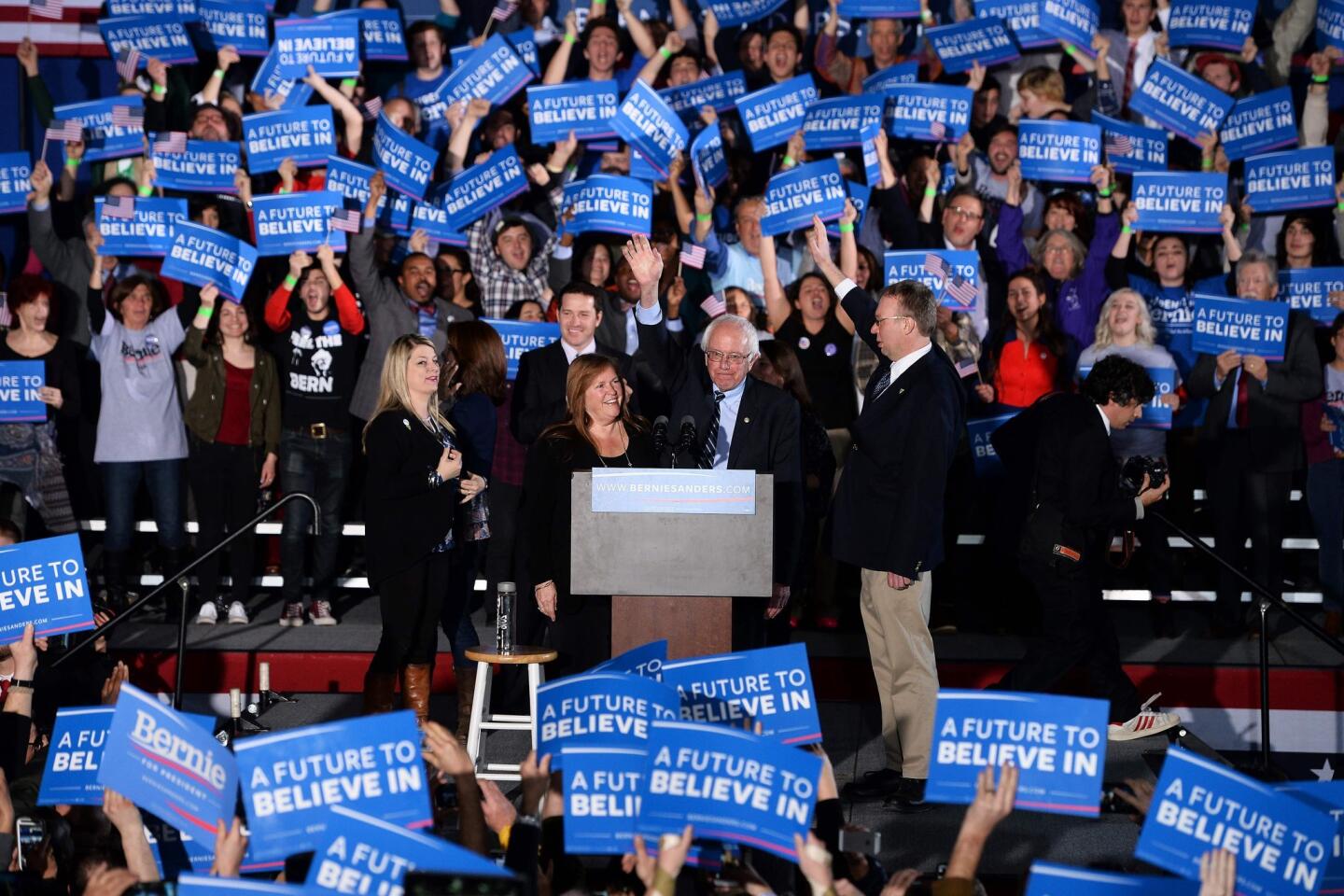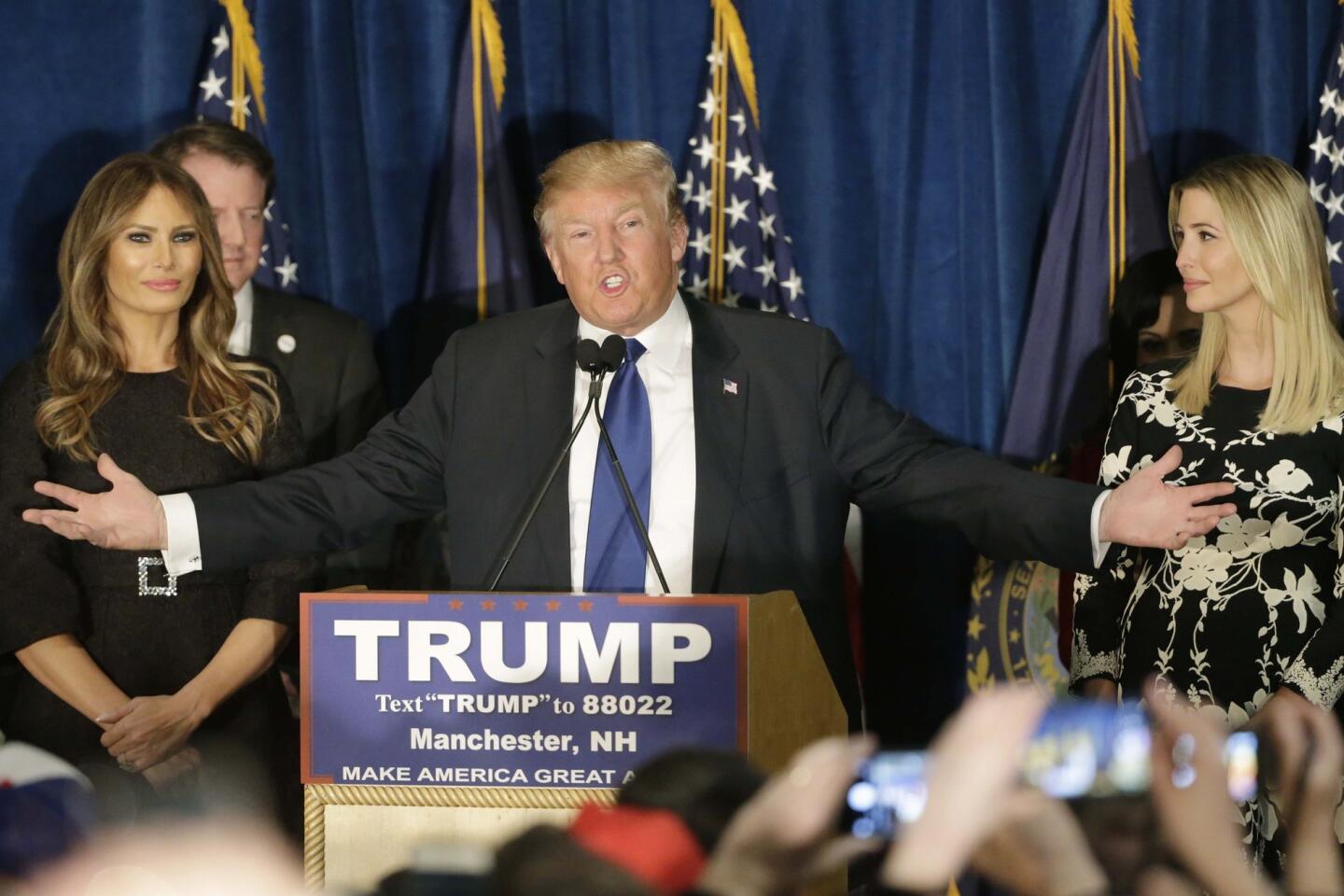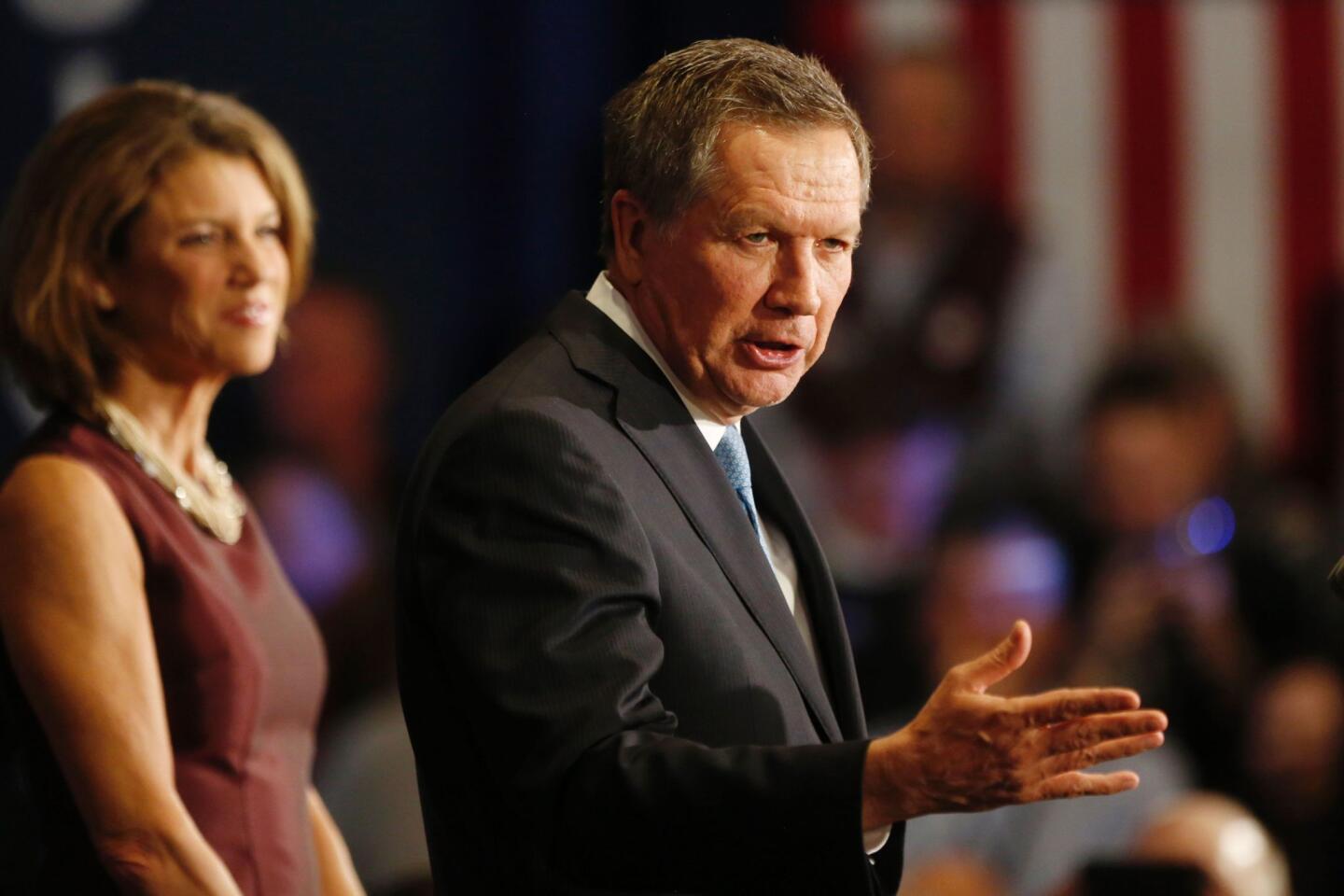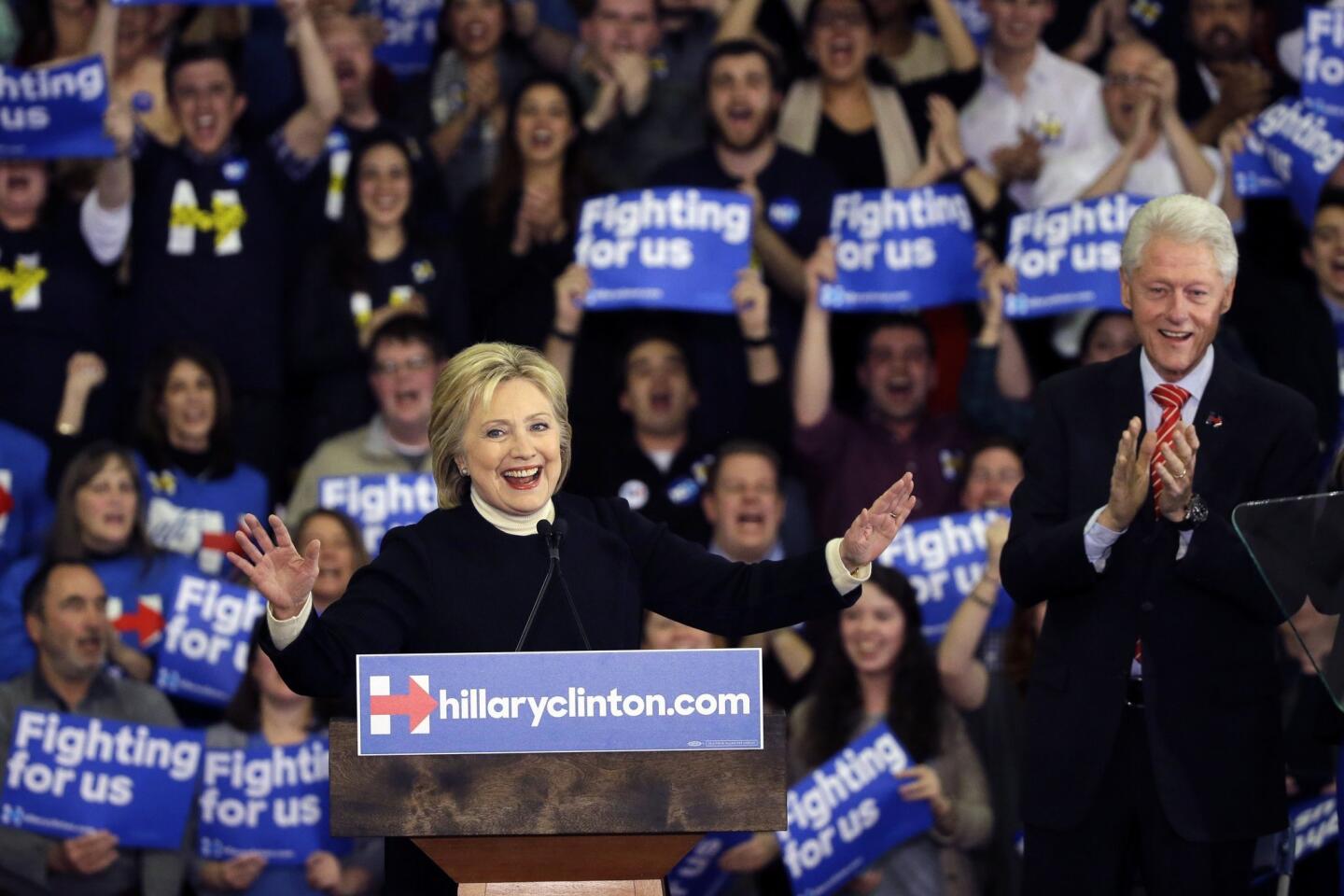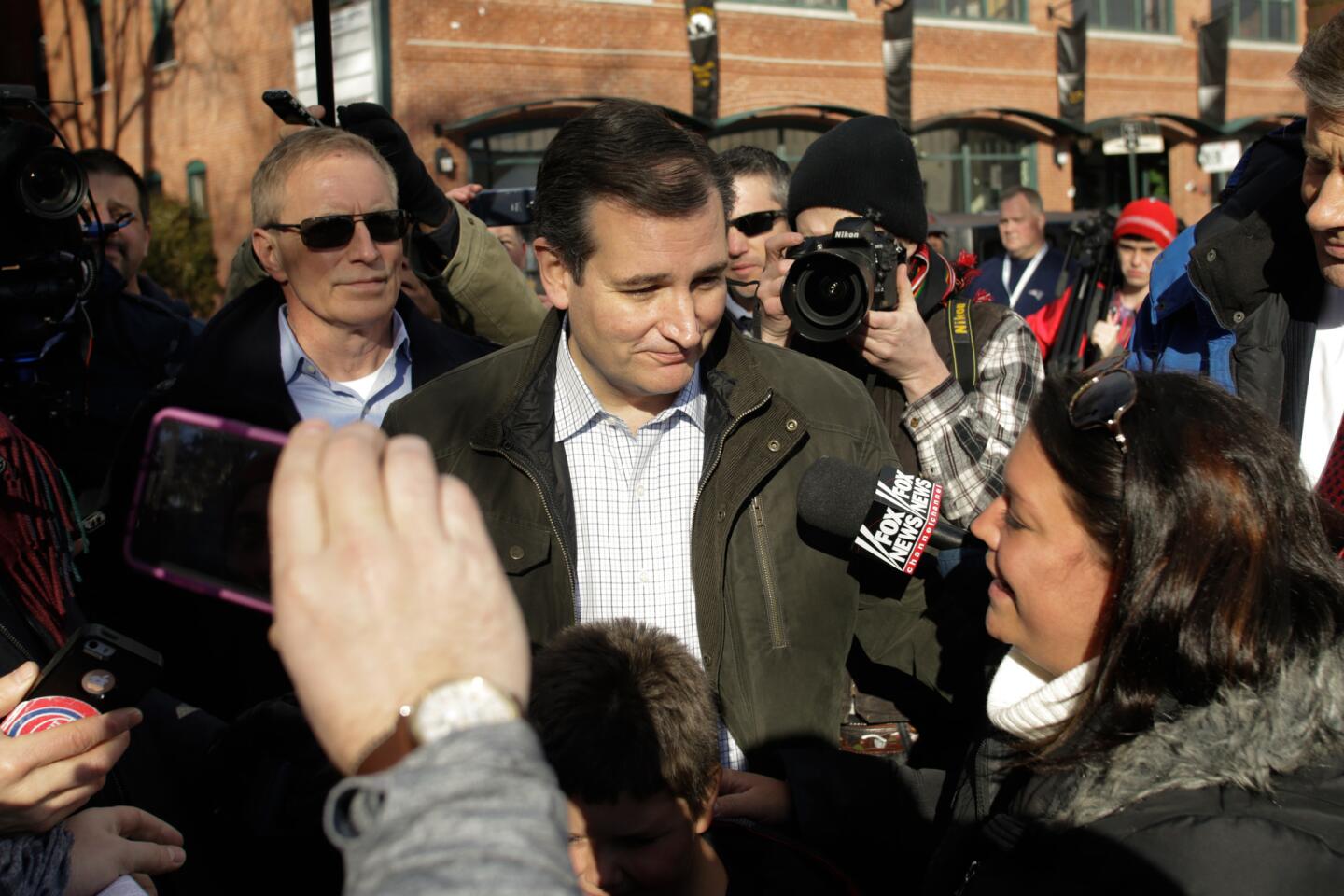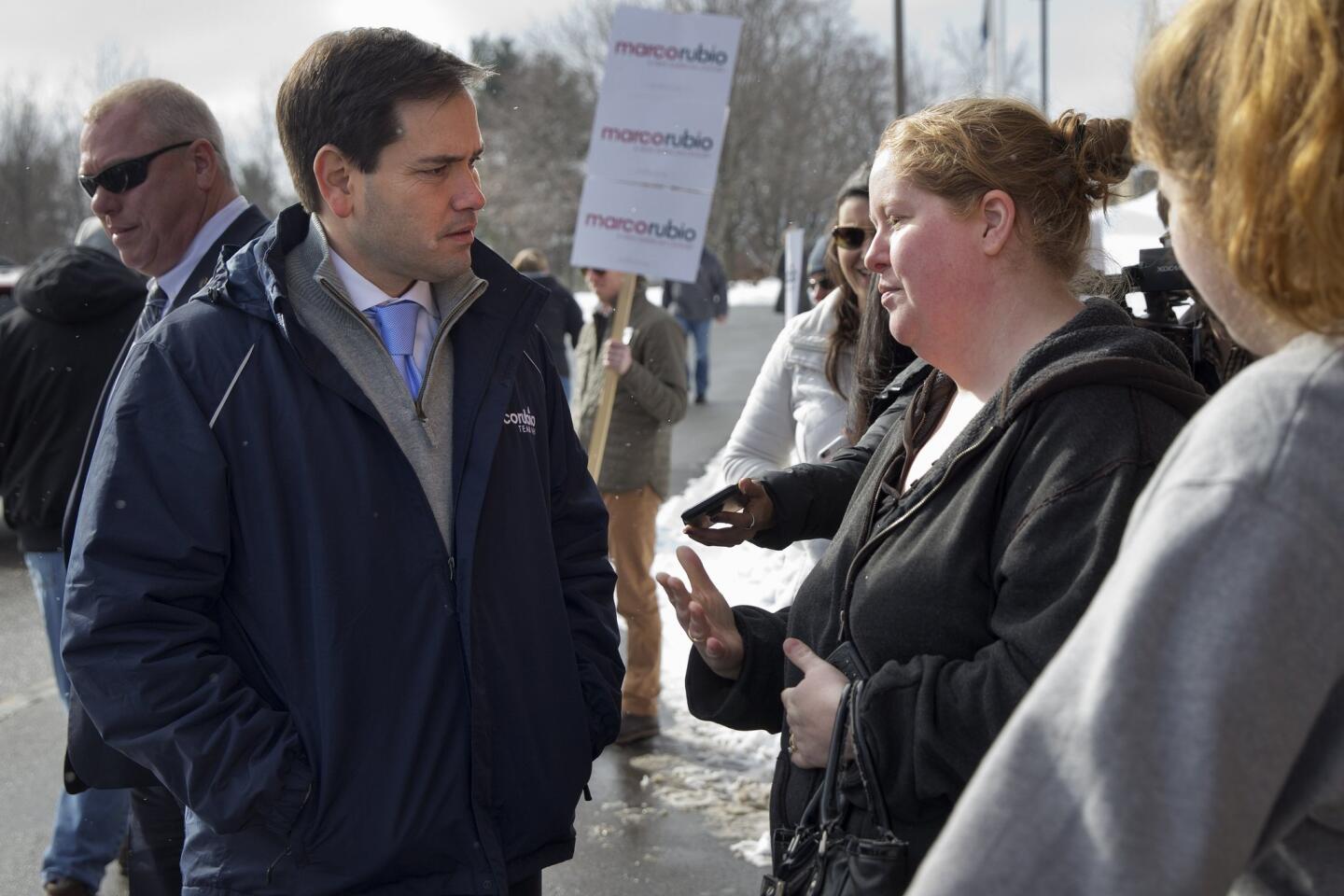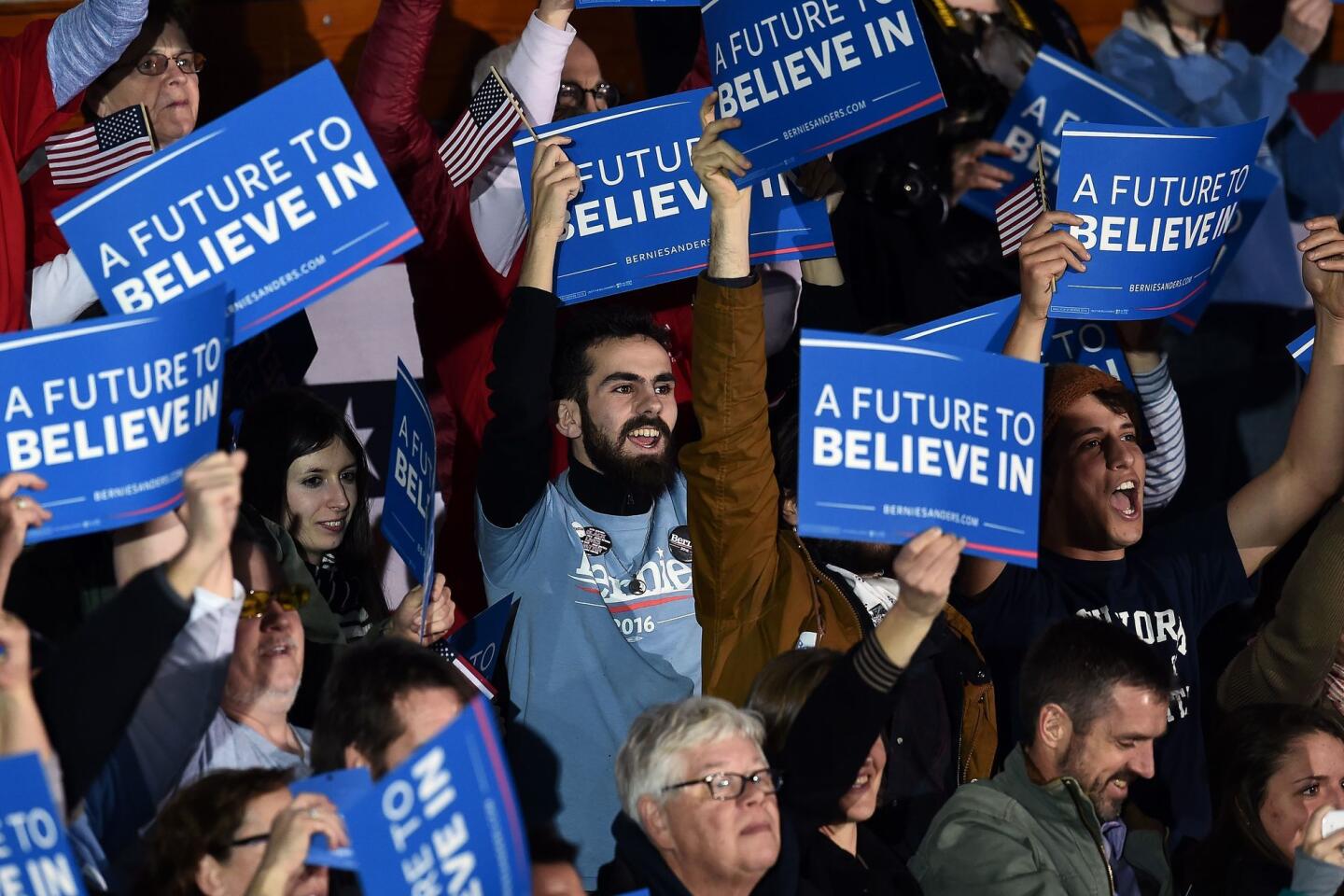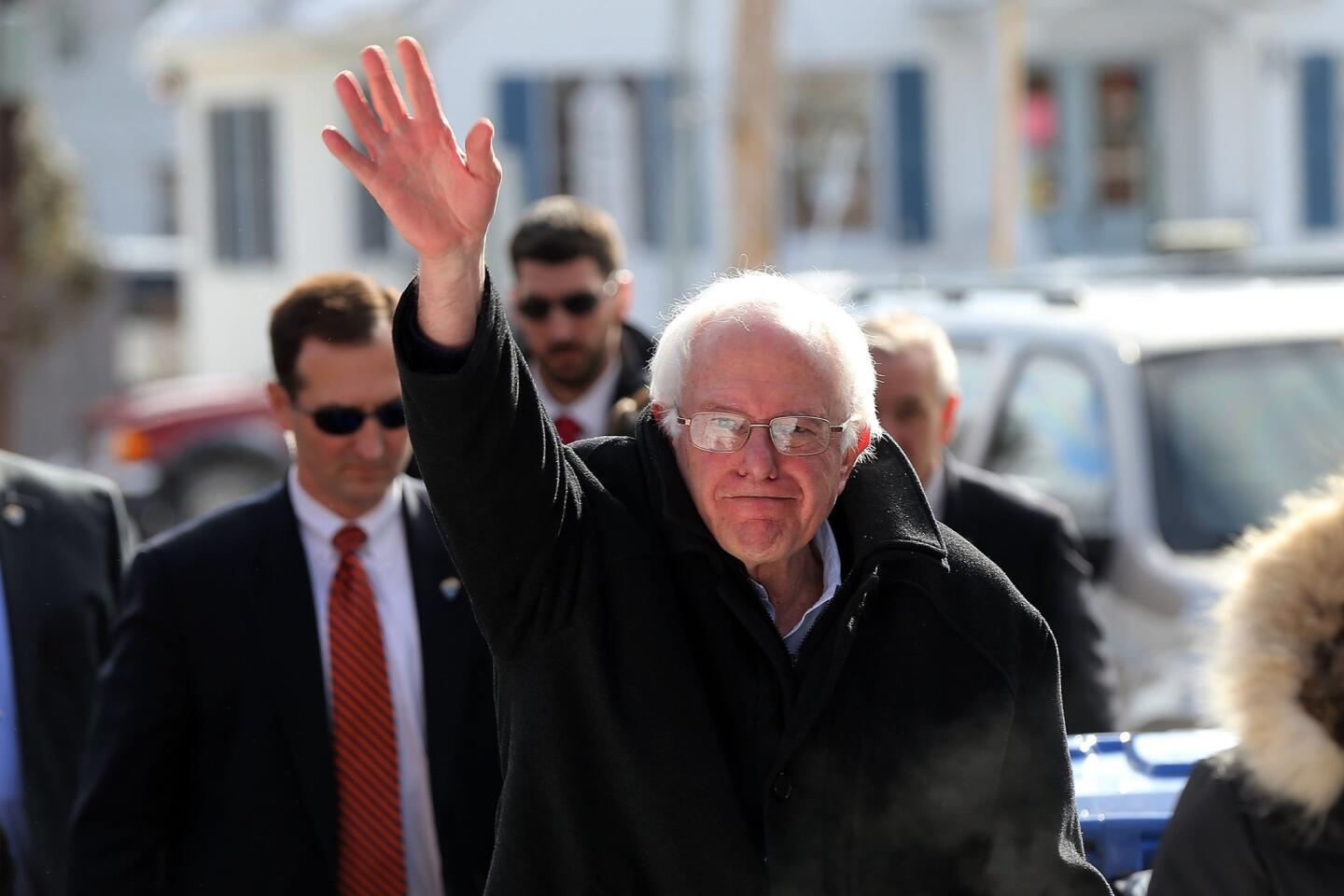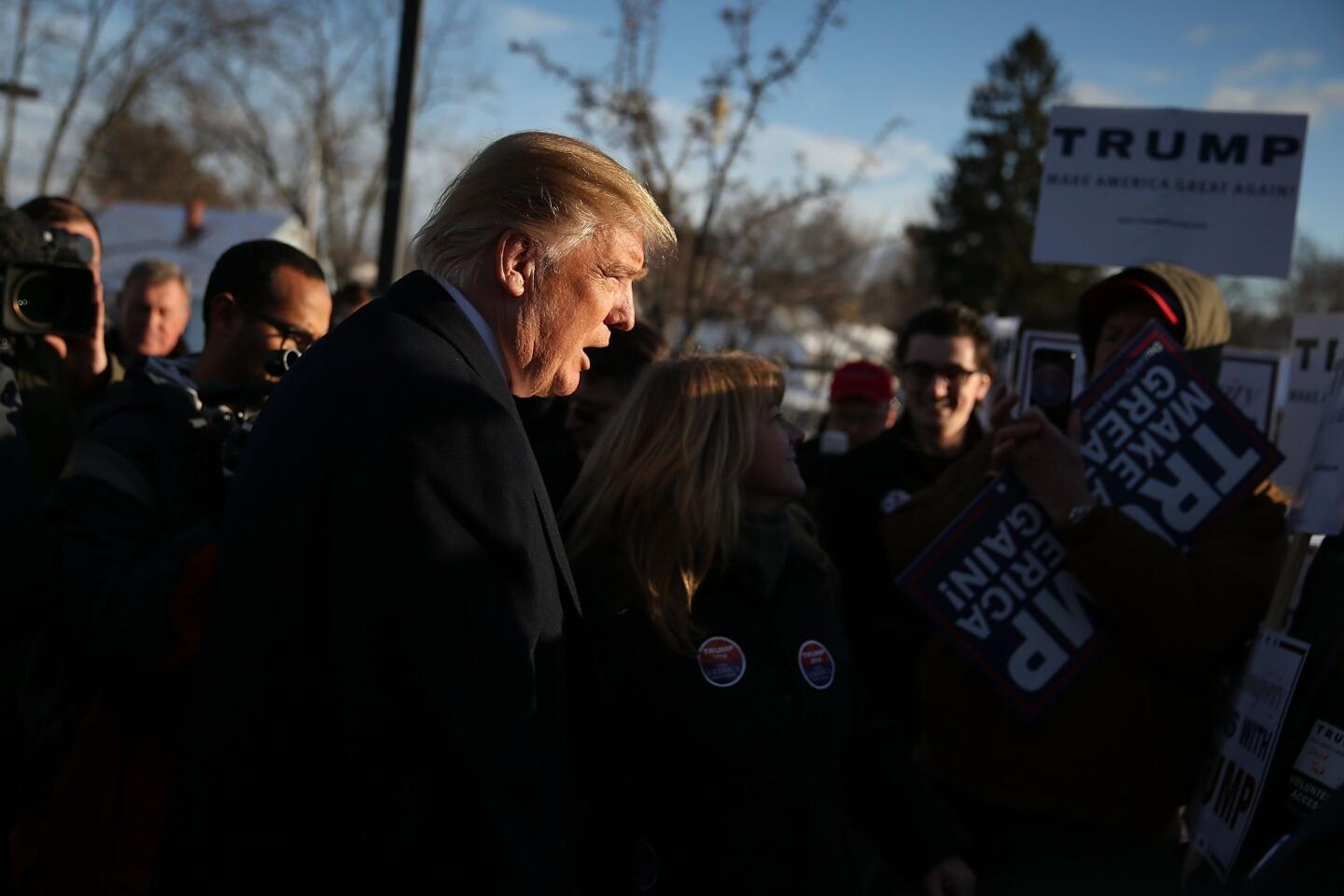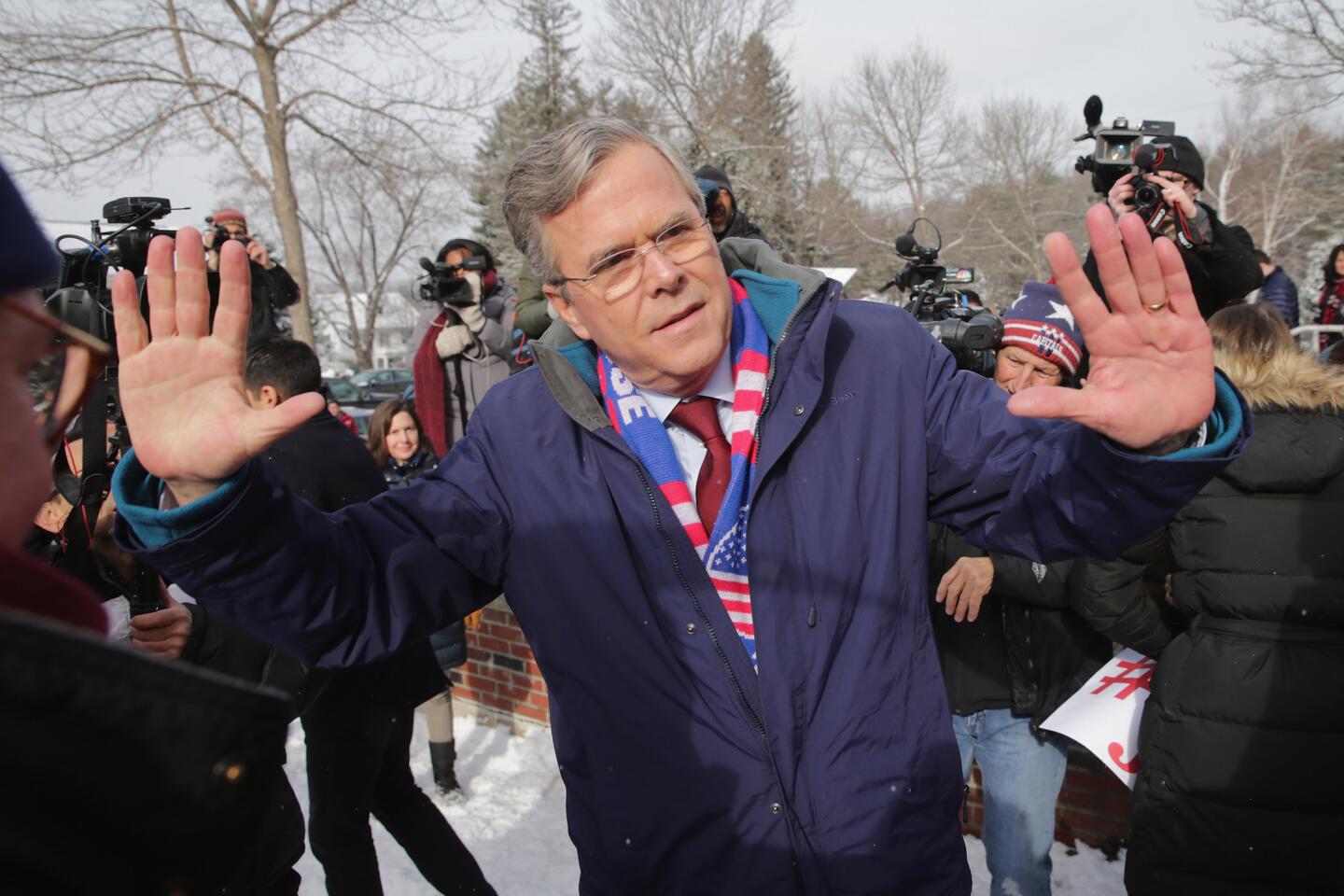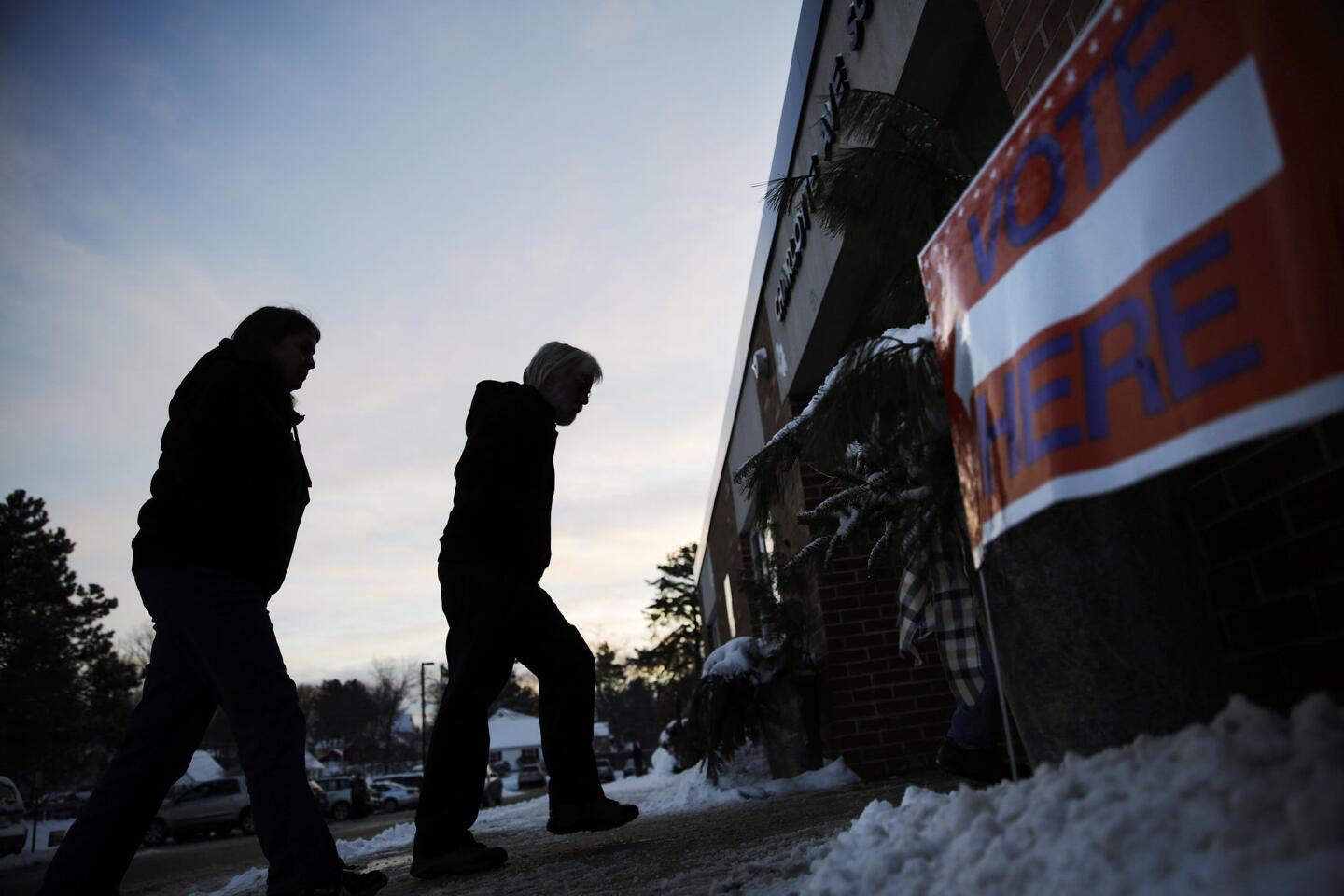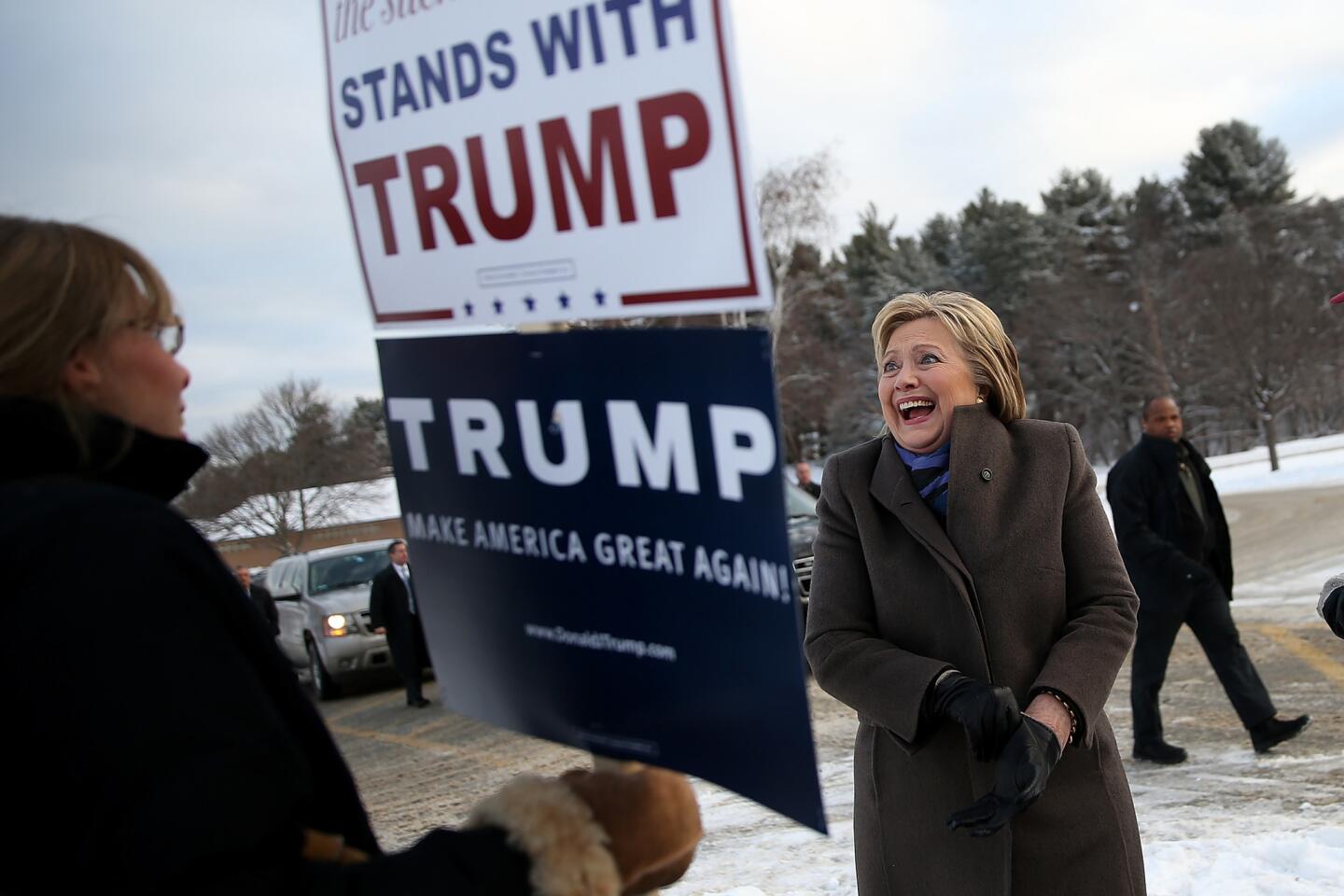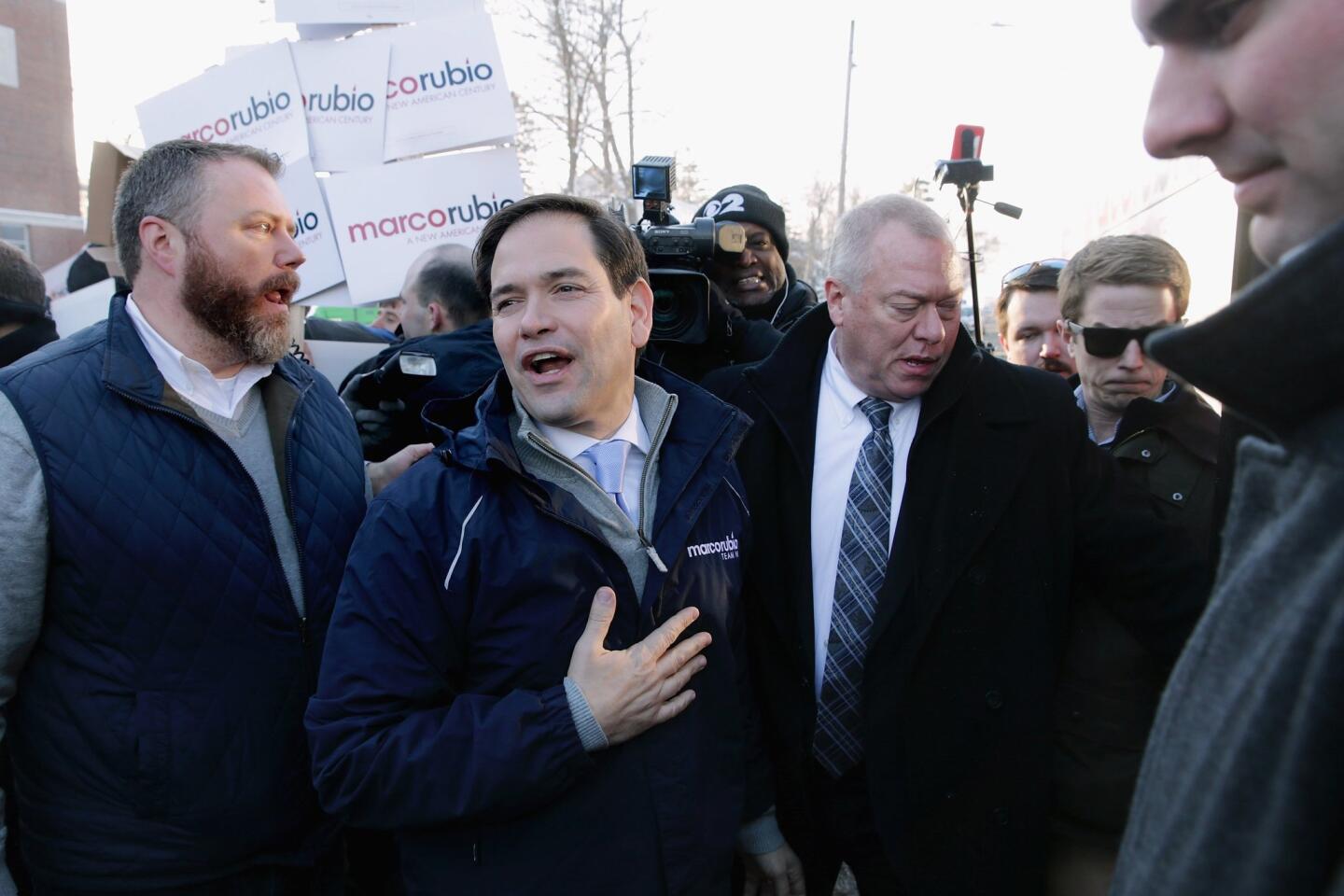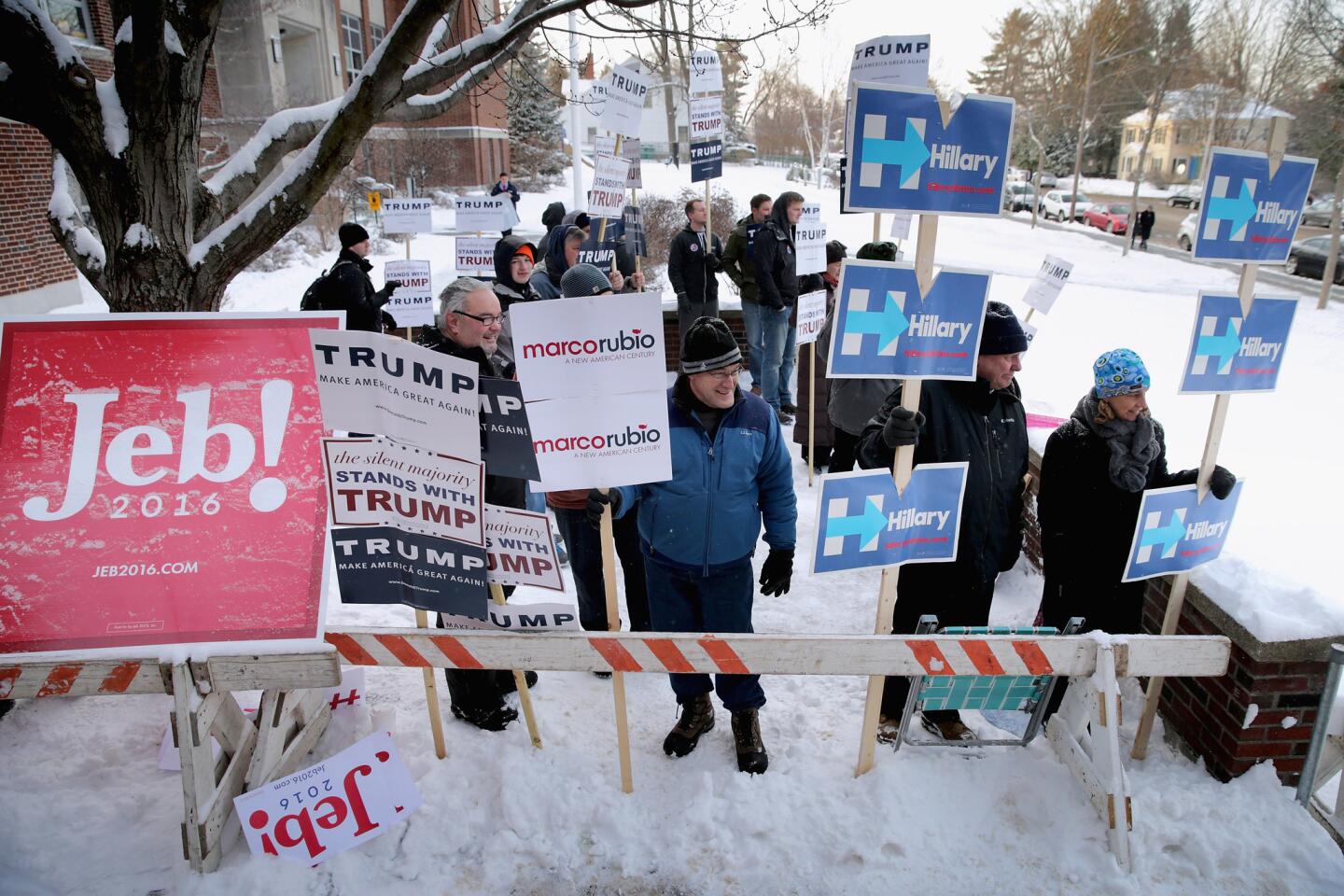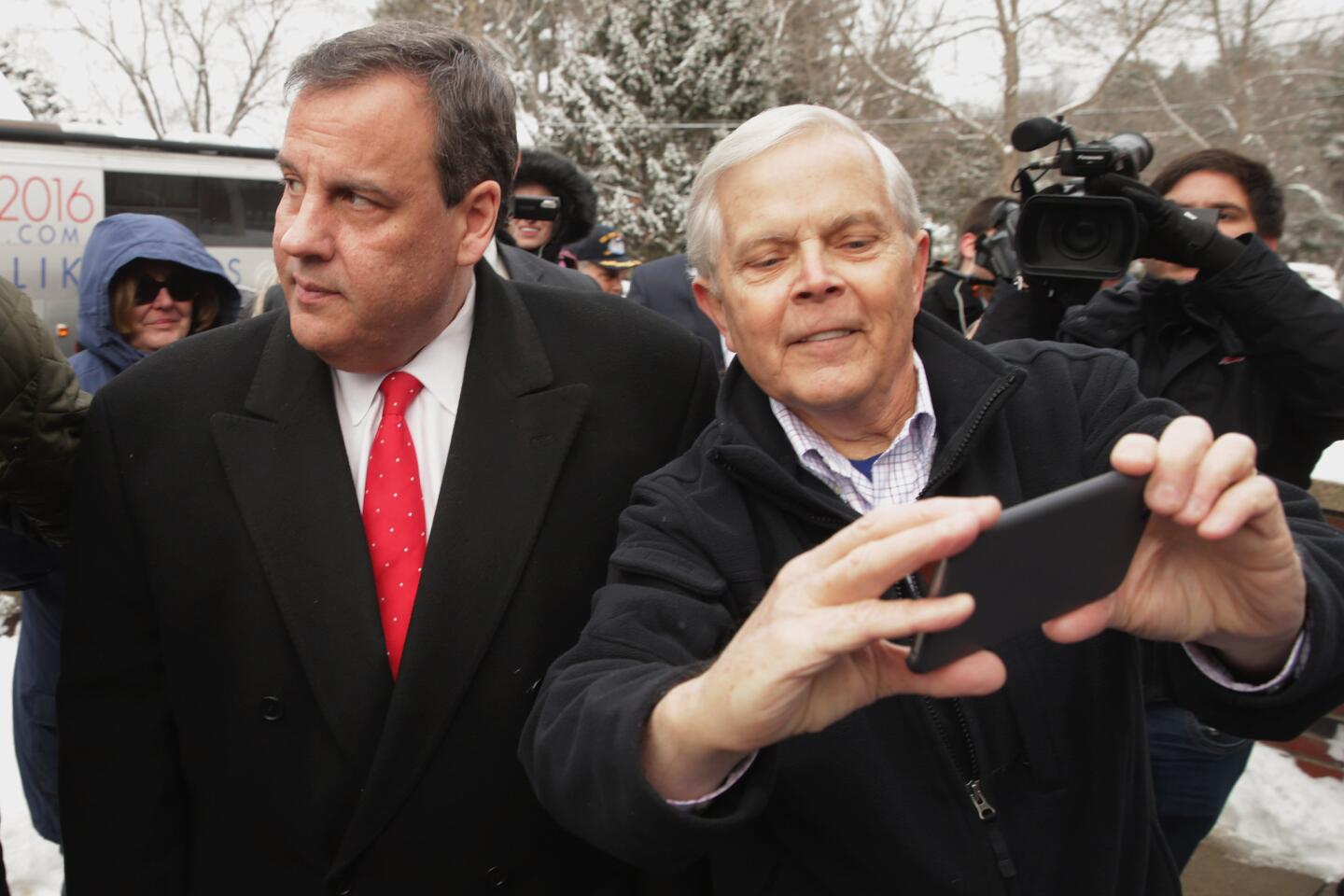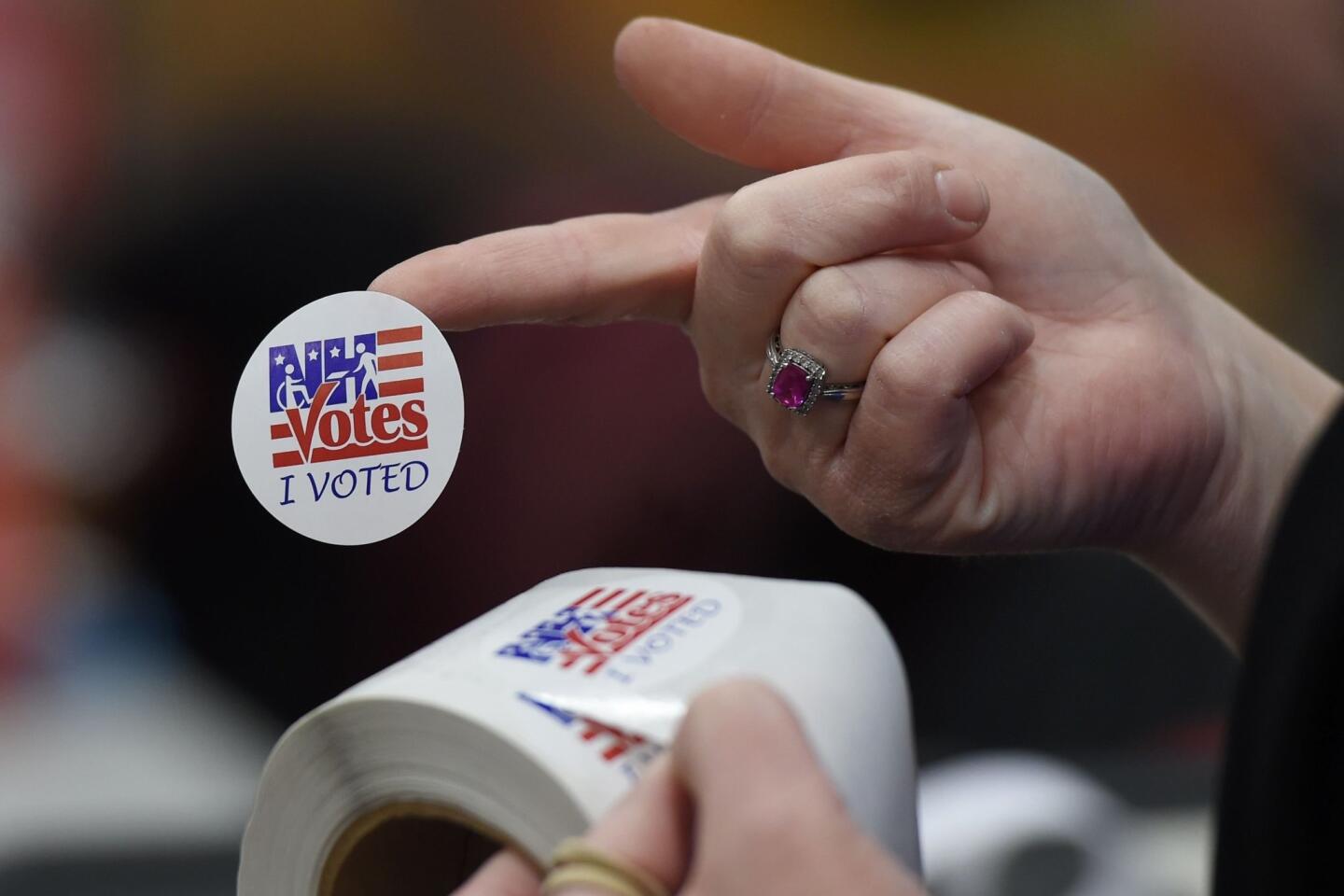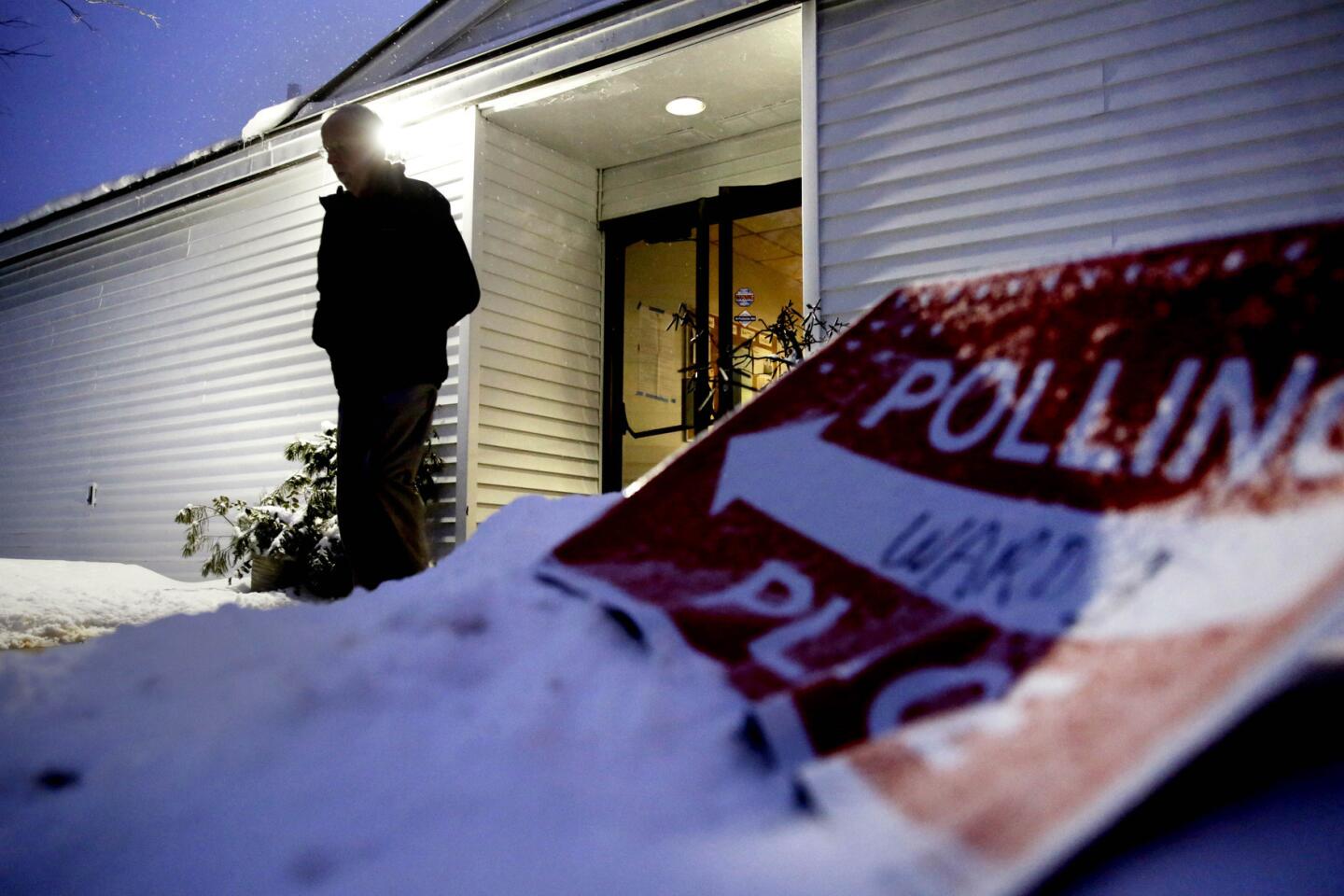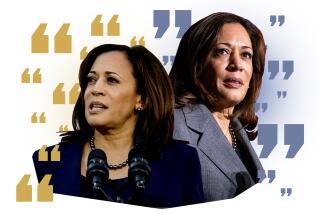Analysis: In New Hampshire, Hillary Clinton sounds both tone deaf and human: ‘This is hard for me’
Democratic presidential candidate Hillary Clinton greets voters outside a polling station at Fairgrounds Junior High School on Tuesday in Nashua, N.H.
The Democratic primary race here has not provided the sort of drama the Republican contest has wrought, but it has shined a bright light on the woman who remains the party’s front runner, Hillary Clinton—and demonstrated both troublesome and enticing halves of her candidacy.
Despite months of campaigning, Clinton can still be tone deaf when it comes to explaining herself on key voter concerns, like the private email system she used as secretary of State and the hundreds of thousands of dollars in speaking fees that she received from Goldman Sachs. That would be surprising in a candidate new to the stage, much less someone who has been in the public eye for decades.
Yet she can also surprise, brushing aside a lifelong penchant for privacy at a televised town hall a few days ago to talk movingly about how she balances ego and humility. In politics at this level, where nearly everything is calculated to the word, a human response is rare indeed.
The question coming out of New Hampshire is not, barring a shocking surprise, who will win: Vermont Sen. Bernie Sanders has held an expansive lead throughout. The question for Clinton -- which is more crucial to a general election than a primary, to be sure — is whether those moments she has been at her best suggest she’s capable of expanding her persona in the months to come.
There’s always been an almost visible tension in Clinton’s public life, a sense only exacerbated by comparisons to a husband who so thoroughly embraces all of the hand-shaking and glad-handing of politics as if it’s gasoline to his engine.
If he seemed to be almost too familiar, she seemed always to have her armor on. (Not without reason; as she has pointed out in New Hampshire, she remains the chief target of moneyed Republicans.)
See the most-read stories this hour >>
There was even an odd bit of wordplay at work in New Hampshire, where Bill Clinton in 1992 vowed to keep fighting “‘til the last dog dies.” In Hillary Clinton’s terminology, it was a little less evocative: “I’m going to keep fighting until the last vote is counted on Tuesday.”
She acknowledged the difference between herself and Bill Clinton in an exchange at Wednesday’s town hall, which was something of a revelation.
“This is hard for me,” she said when asked by a rabbi about the humility/ego balance. “You know, I never thought I’d be standing on a stage here asking people to vote for me for president. I always wanted to be of service. I met my husband, who was such a natural, knew exactly what he wanted to do…”
She said she was “constantly trying to balance” seeking the mantle of the presidency with not losing “track of who I am, what I believe in and what I want to do to serve.”
See more of our top stories on Facebook >>
“I have that dialogue at least, you know, once a day in some setting or another. And I don’t know that there is any ever absolute answer, like, ‘OK, universe, here I am, watch me roar’ or ‘Oh, my gosh, I can’t do it, it’s just overwhelming, I have to retreat.’ It’s that balance that I keep to try to find in my life that I want to see back in our country.”
The idea of Hillary Clinton retreating from anything came later in that same town hall, however, in ways that suggest rocky times ahead for her candidacy. At the very least, she handed rival admakers a video clip to remember.
When asked why she took at least $675,000 for speeches to Goldman Sachs before her campaign began, she replied that “I made speeches to lots of groups. I told them what I thought. I answered questions.”
But nearly $700,000?
“Well, I don’t know,” she replied. “That’s what they offered.”
The answer reeked of dismissiveness, and seemed the antithesis of her raw talk minutes before.
TRAIL GUIDE: All the latest news on the 2016 presidential campaign >>
But throughout the New Hampshire campaign, she also seemed to be refining, and improving, the argument she will put to voters in more hospitable states as the election year unfolds.
In Manchester on Monday, as she kicked off the last full day of campaigning before the vote, she delivered an address that asked her audience to “imagine” a world where the nation’s problems are rectified, whether that be the economy gaining jobs, schools improving, or college becoming more affordable. It was an effort to put into a singular vision the laundry list of items that Clinton promises to fight for as president.
“It won’t happen by wishing for it,” she said, a line that seemed aimed at Sanders’ supporters but also distilled her dogged political style, “it will happen by working for it.”
She also took another whack at the question of whether money she had received from companies like Goldman Sachs or other Wall Street lions had corrupted her. That has been the none-too-subtle underpinning to Sanders’ campaign, and an issue that would follow her into a general election campaign.
“I say what I mean and I do what I say,” she said firmly, and put a positive, less contentious spin on her long political history. “I will take them on, and I know how to beat them.”
The New Hampshire campaign will soon fade; by week’s end Clinton will be in South Carolina, a state that lines up more favorably with her demographic strengths. Nevada votes before that, and right now is also in her corner.
Things can change, however, as Obama’s surprising challenge to Clinton demonstrated in 2008. That year, New Hampshire was central to salvaging her candidacy. This year it may matter less, but it may also have served to bring her closer to crafting a candidacy that will work in all the states to come.
For political news and analysis, follow me on Twitter: @cathleendecker . For more on politics, go to latimes.com/decker.
ALSO
Listen to the Essential Politics Podcast on New Hampshire
Sanders supporters may not be there for Clinton if he loses
With New Hampshire defeat likely, Clinton shifts attention to Nevada, S.Carolina
Key issue dividing Democrats: How much change do they want?
More to Read
Get the L.A. Times Politics newsletter
Deeply reported insights into legislation, politics and policy from Sacramento, Washington and beyond. In your inbox three times per week.
You may occasionally receive promotional content from the Los Angeles Times.
